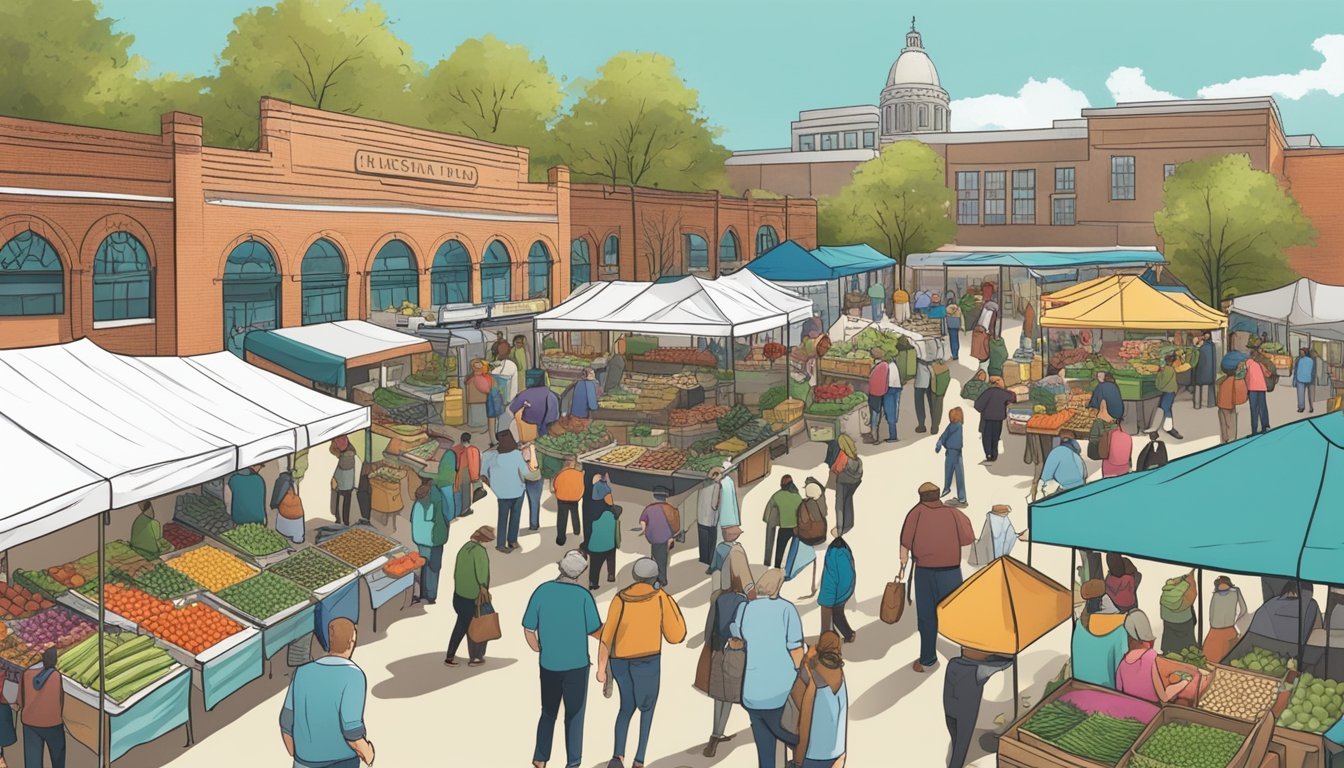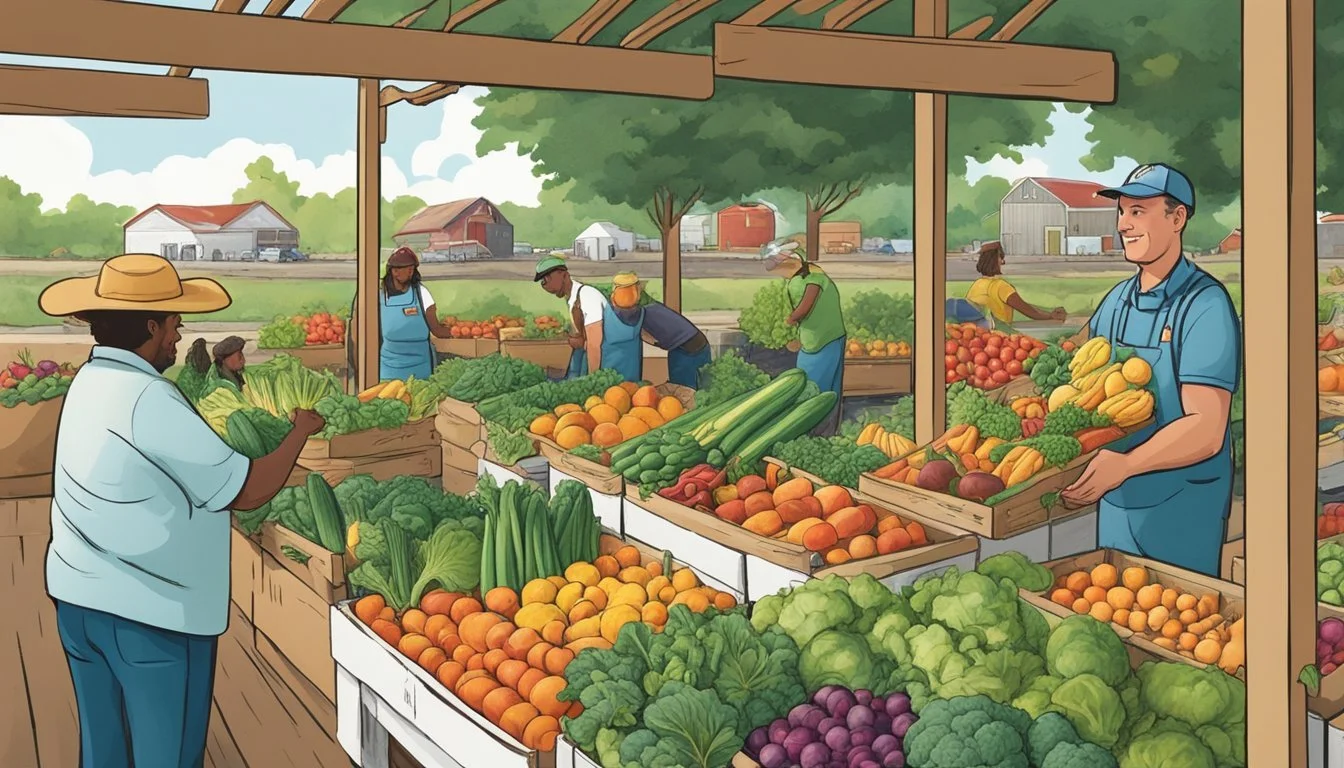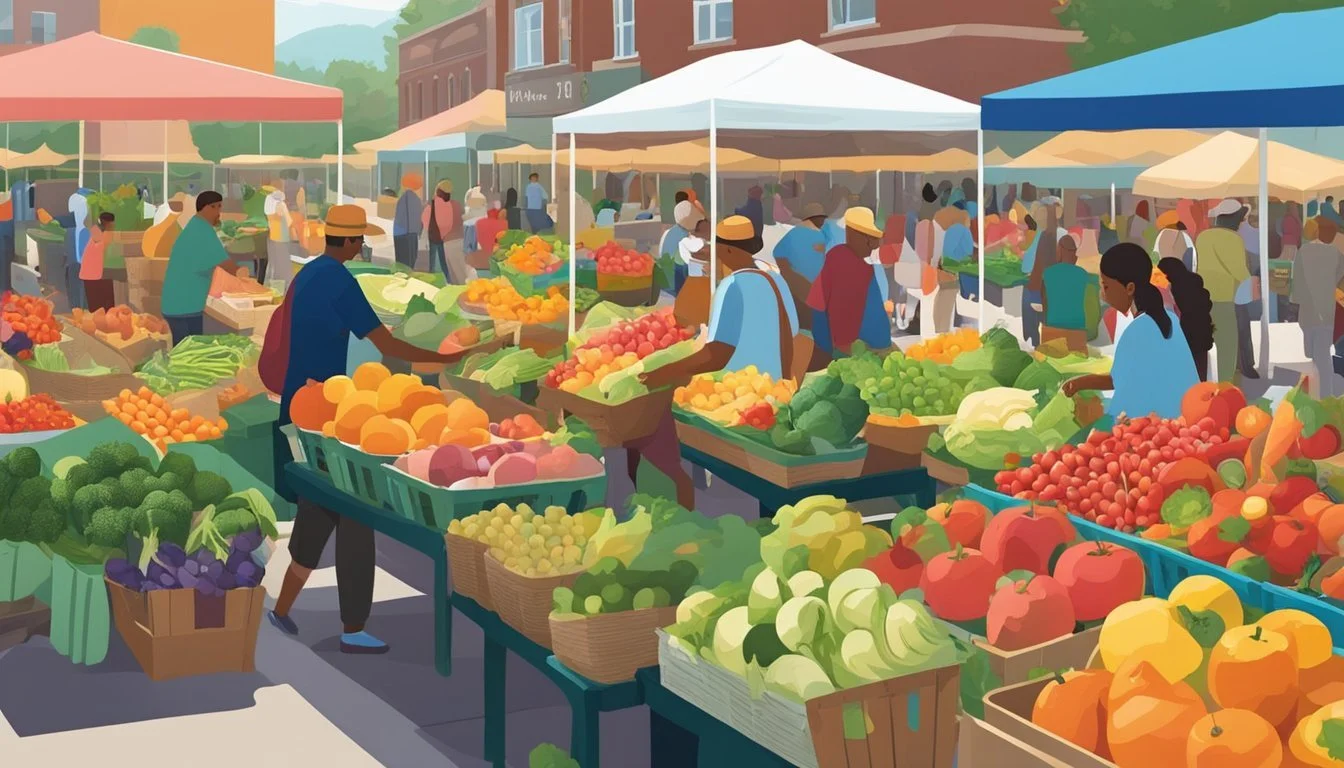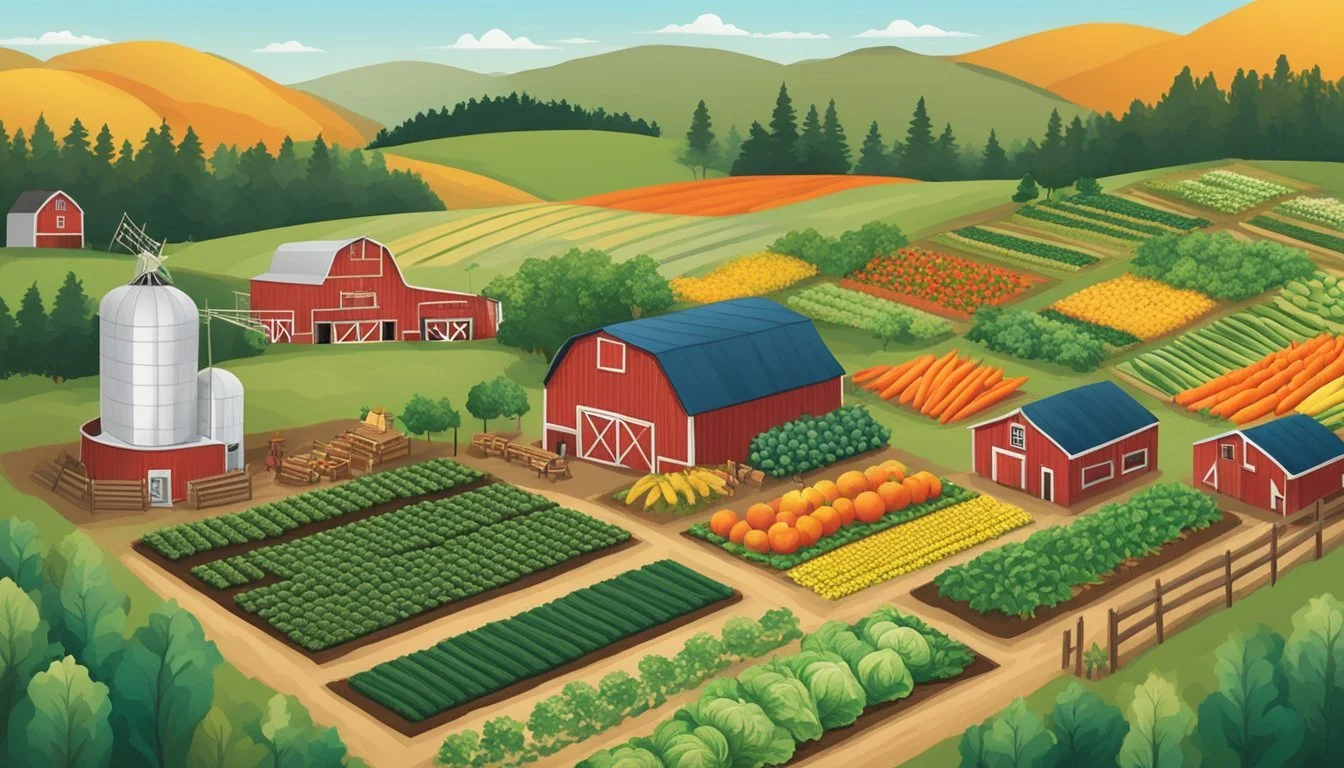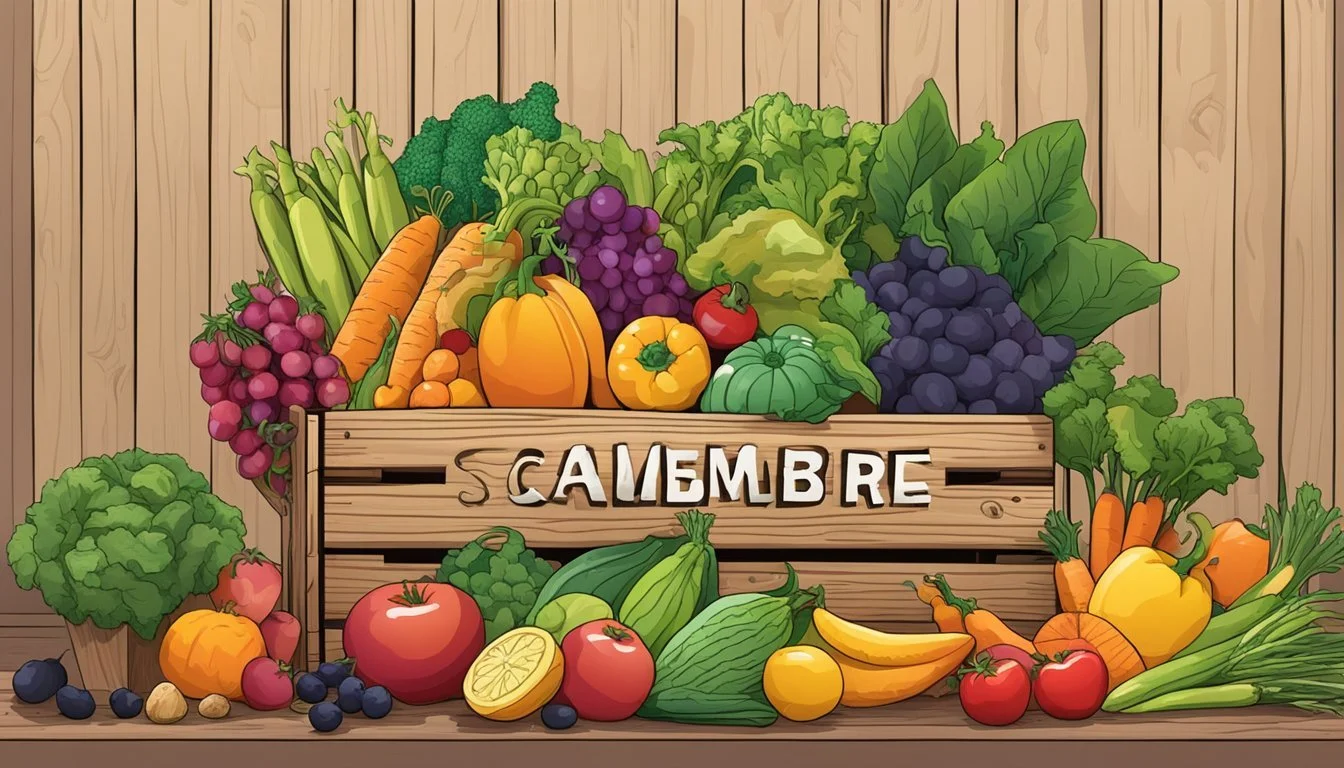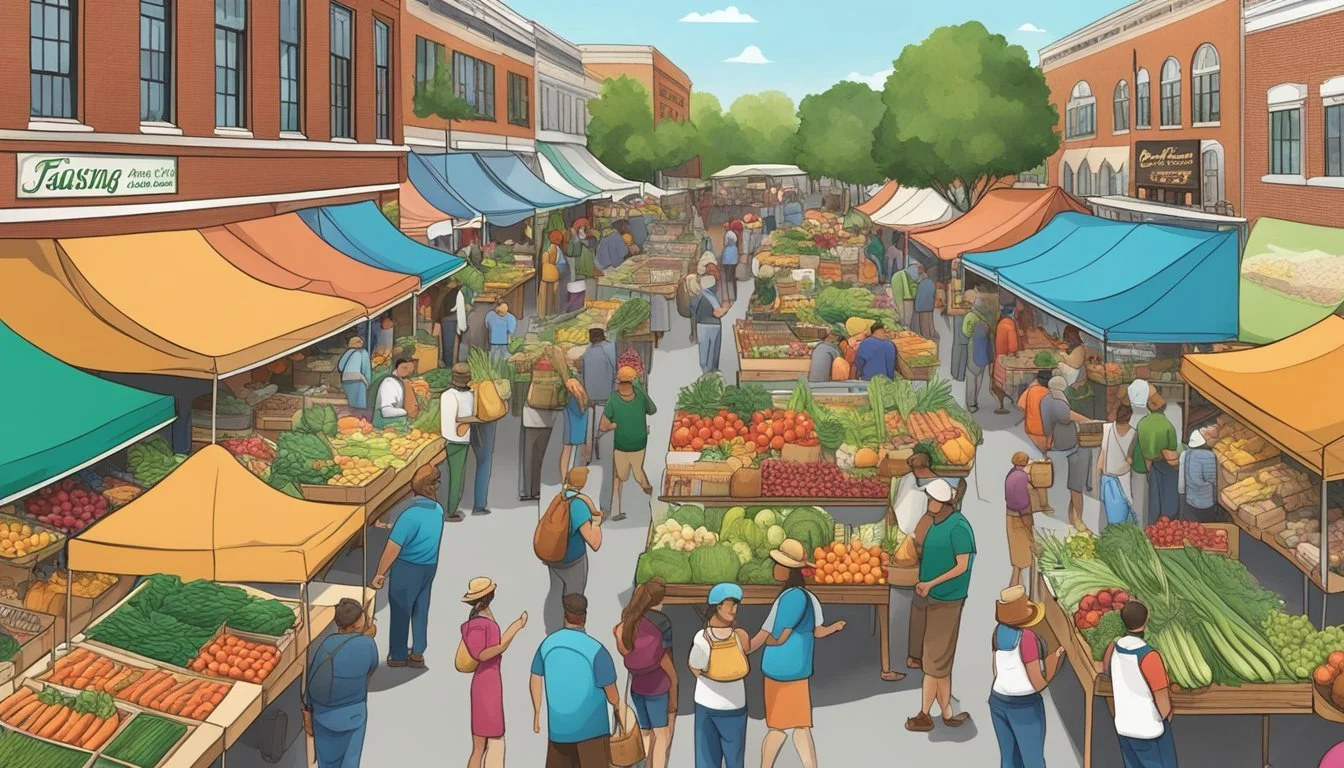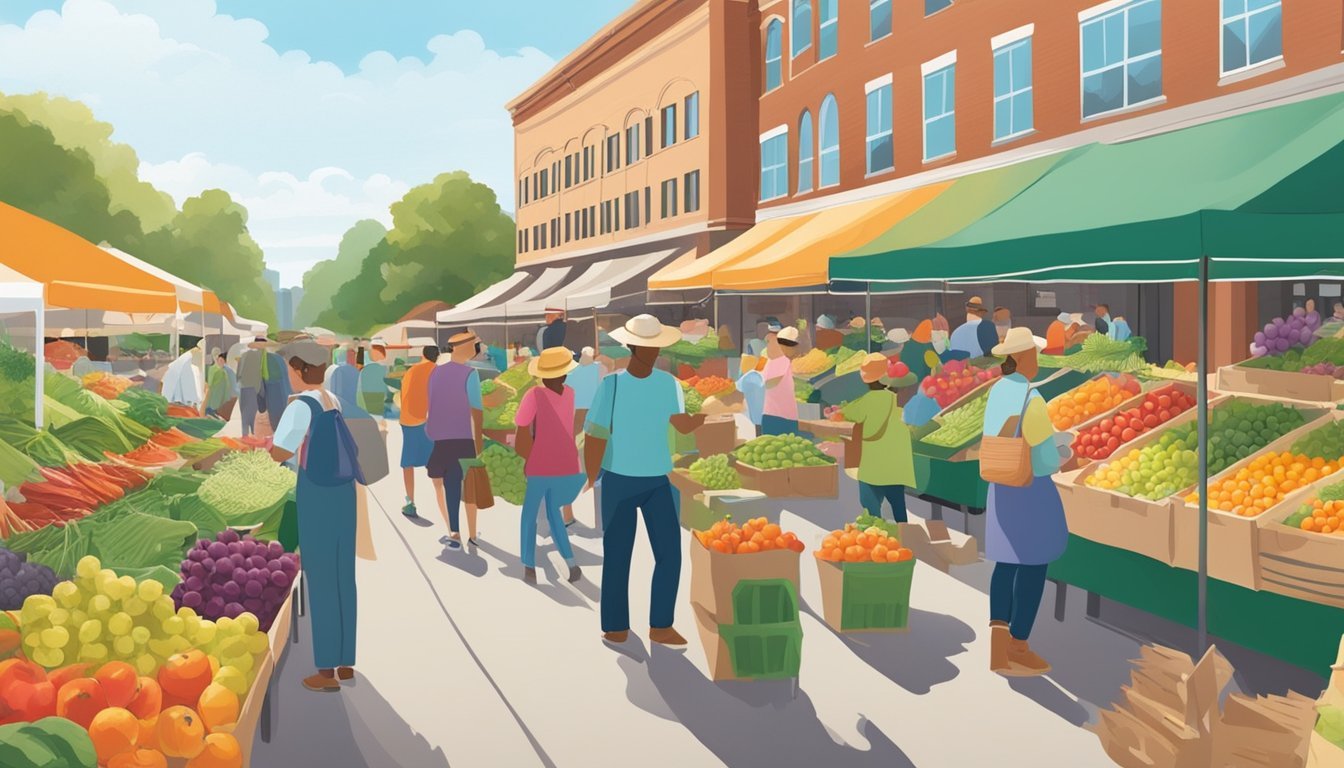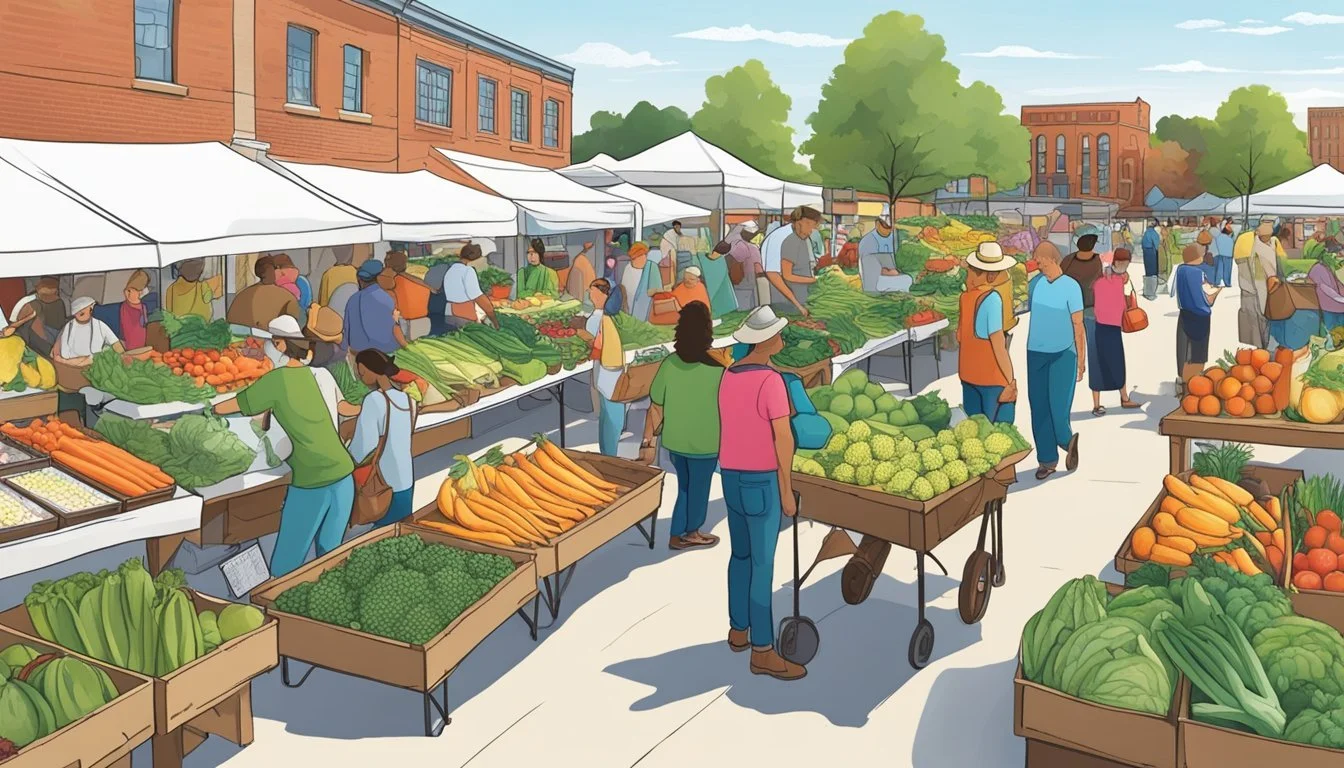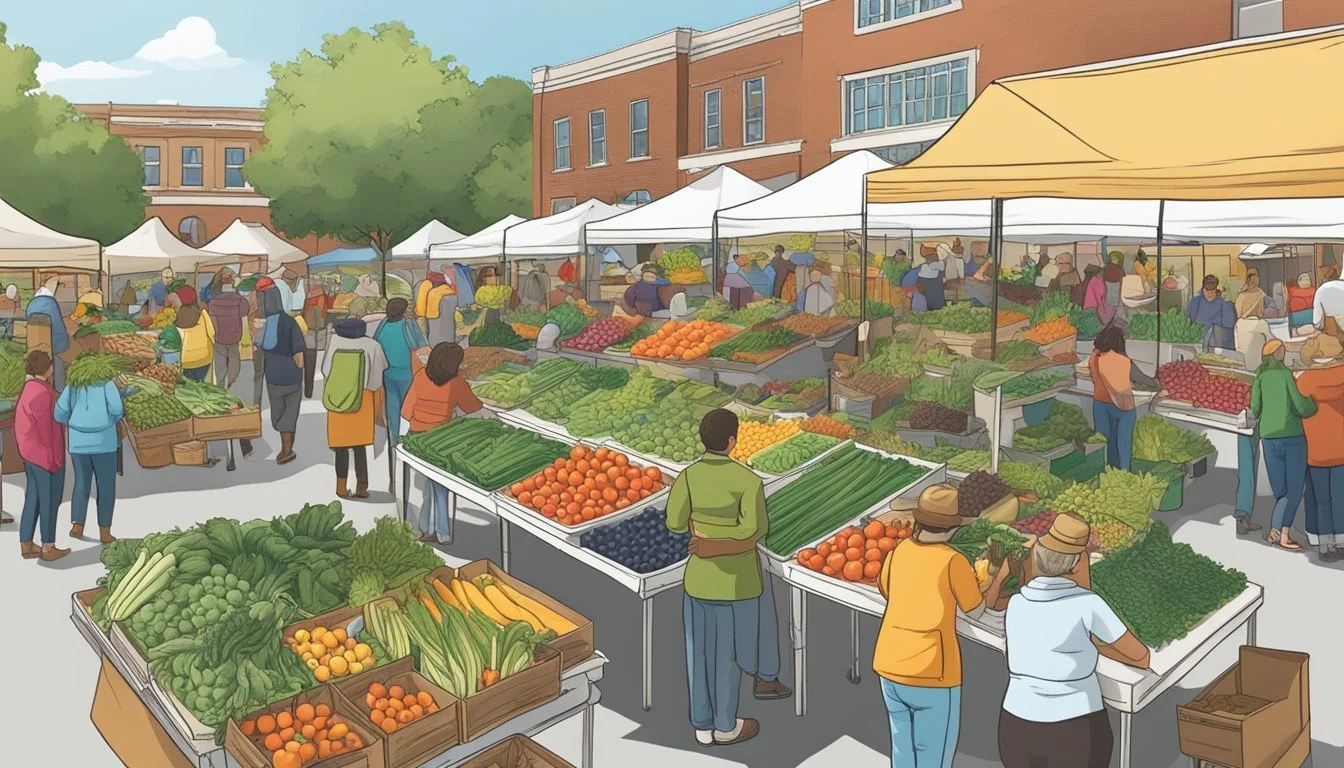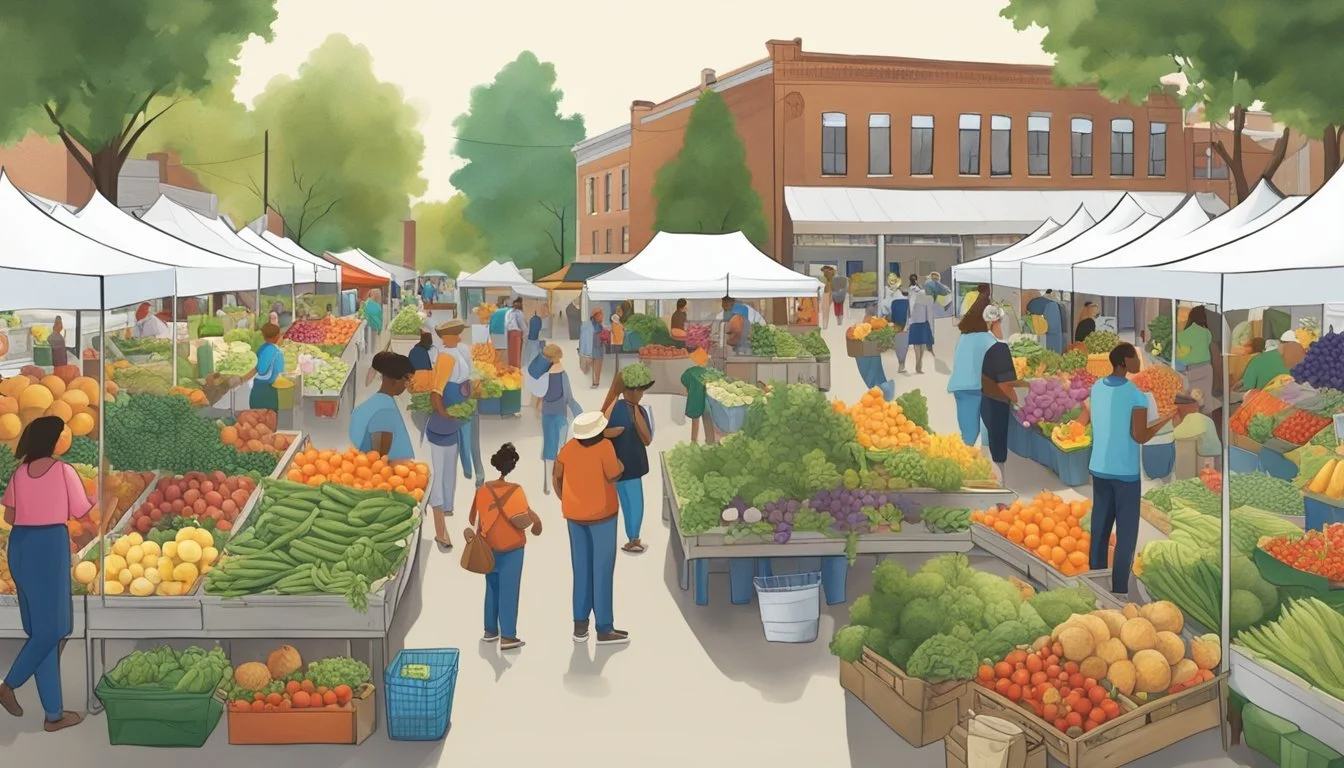Community Supported Agriculture (CSA) in Lansing, MI
A Guide to Local Farm Shares
Community Supported Agriculture, commonly known as CSA, is a farming model that has taken root in Lansing, Michigan, fostering a close-knit relationship between local farmers and community members. In a CSA, members pay for a share of the harvest upfront, which provides farmers with necessary funds at the start of the growing season and gives consumers a regular supply of fresh, locally grown produce. With its promise of seasonal, farm-fresh goods, the CSA model in Lansing not only bolsters sustainable agriculture but also helps create a food-conscious community.
Lansing's embrace of the CSA framework supports a variety of participating farms, each with distinct operations and offerings. Options range from organic vegetable boxes, year-round produce subscriptions to partnerships that promise the freshest possible bounty from the local soil. Members of Lansing's CSA programs often enjoy the diversity of produce provided, which can include vegetables, fruits, and other farm products. Moreover, the commitment to CSA in Lansing has cultivated a sense of shared responsibility and mutual benefit, where the risks and rewards of farming are spread across the community.
The impact of this collaborative effort extends beyond providing nutritious food options to the people of Lansing. By investing in CSAs, residents encourage sustainable farming practices, contribute to the local economy, and reduce the carbon footprint associated with long-distance food transport. Community Supported Agriculture in Lansing stands as a testament to the region's dedication to environmental stewardship and its championing of the bond between local farmers and consumers.
Understanding CSA
Community Supported Agriculture (CSA) represents a model of farming where individuals commit to supporting a farm operation, thereby directly contributing to the sustainability and success of local agriculture. In Lansing, MI, CSAs play a pivotal role in promoting sustainable agriculture and providing the community with seasonal produce underpinned by organic practices.
History of CSA
The concept of CSA began in the 1960s in Germany, Switzerland, and Japan as a response to concerns about food safety and the urbanization of agricultural land. It reached the United States in the 1980s and has since grown in popularity. Lansing's CSAs are part of this ongoing movement that joins producers and consumers together in a shared commitment to sustainable food systems. This historical context sets the stage for understanding the deep-rooted values of community and sustainability that Lansing area CSAs embody.
CSA Business Model
The CSA business model is based on a partnership between farmers and community members. Here's a breakdown of how it typically functions:
Shares: Community members purchase shares or memberships from a local farm in advance of the growing season.
Risk and Reward: Both the farm and the members share the risks and rewards of the farming season.
Seasonal Produce: In return for their investment, members receive a portion of the farm's harvest, which usually includes a variety of seasonal produce.
In Lansing, several CSA farms operate with this model, offering different sizes of shares and various pickup locations throughout the region. They may also operate year-round, depending upon their capacity to do so.
CSA Membership Process
To become a member of a CSA in Lansing, one typically follows these steps:
Research local CSA options to find a farm that fits your needs.
Select the size of the share you want to purchase, which correlates with the amount of produce you'll receive.
Pick up your share of produce at designated locations during the farming season.
Memberships provide a way for consumers to enjoy fresh, locally grown food while also ensuring that farmers have a predictable income and market for their produce.
By participating in CSA, Lansing residents support sustainable agriculture practices and local economies, foster a connection to their food source, and join a community invested in ecological stewardship.
Benefits of CSA
Community Supported Agriculture (CSA) in Lansing, Michigan, offers a model that nurtures environmental stewardship, bolsters the local economy, and promotes the health and well-being of its community through connections to sustainable and often organic farming practices.
Environmental Benefits
CSA initiatives typically prioritize sustainable agriculture, leading to a smaller carbon footprint. By focusing on local produce, CSAs help reduce the transportation and packaging associated with long-distance food delivery. Additionally, many CSA farms use organic methods, which promote biodiversity and aim to maintain soil fertility while avoiding synthetic pesticides and fertilizers.
Sustainable practices: Reduced pesticide use, improved soil health
Local focus: Shorter travel distances for produce
Economic Benefits
Investing in a CSA directly supports family farms and the local economy. Members' subscription fees provide a stable income for farmers, enabling better financial planning and risk management. This economic model also fosters closer relationships between consumers and growers, which can create a loyal customer base and incentivize local entrepreneurial ventures, such as urban gardens.
Support for family farms: Direct consumer investment
Growth of the local economy: Money spent on CSA stays in the community
Health and Well-Being
CSA members receive a regular supply of fresh produce, elevating their diet with nutritious, seasonally harvested food. This access to fresh, often organic produce, can enhance members' overall well-being. Additionally, the sense of community and shared experiences among members—through farm visits, potlucks, and other events—enriches social connections and contributes to emotional health.
Access to fresh produce: Regular deliveries of fresh, seasonal items
Community connection: Social events and shared risk in crop yield
CSA Programs in Lansing
Lansing, Michigan, supports a vibrant CSA scene, offering local residents the opportunity to invest in community agriculture and receive shares of fresh produce. Programs vary in services and community impact, contributing to a robust local food system.
Thornapple CSA
The Thornapple CSA operates in the Lansing area, known for connecting the community to fresh, naturally grown produce. Subscribers to the program receive a periodic share of the farm's yield, fostering a direct relationship between the consumer and the land. This arrangement supports not only healthier eating but also sustainable farming practices.
Lansing Roots
The Lansing Roots program, designed by the Greater Lansing Food Bank, stands as an incubator farm aimed at assisting beginning farmers. It extends beyond traditional CSA models by integrating educational components and support services, ensuring a valuable contribution to the long-term vitality of local farming. This innovative CSA approach promotes the growth of both new farmers and fresh produce for the Lansing community.
Greater Lansing Food Bank's CSA
The Greater Lansing Food Bank administers a CSA program dedicated to hunger relief and healthy food access. By harnessing the power of community-supported agriculture, they connect households with nutritious food choices and support the mission of ending food insecurity. Their CSA program not only delivers fresh produce but also reinforces the local food economy by engaging multiple local farms.
What to Expect as a CSA Member
When joining a Community Supported Agriculture program in Lansing, MI, members can anticipate receiving a portion of fresh, locally grown produce throughout the farming season. They will experience first-hand the variety and richness of seasonal Michigan crops.
Seasonal Offerings
CSA members should expect an assortment of vegetables and fruit, reflecting Michigan's growing seasons. Early in the season, shares may include strawberries and leafy greens, while the abundance of mid-summer brings staples such as tomatoes, blueberries, and corn. As the season progresses, root vegetables and squashes typically make their appearance.
Share Sizes and Contents
Shares in Lansing CSAs often come in various sizes to accommodate different household needs. A small share might be suitable for individuals or couples, while a large share could feed a family. Contents of a share are typically a mix of vegetables and sometimes include fruit, flowers, or herbs. Members should
Supporting CSA
Participating in a CSA program benefits both the consumer and local farmers, offering the consumer access to fresh, locally grown produce
CSA Practicalities
In Lansing, MI, community-supported agriculture provides a mutually beneficial relationship between local farmers and community members. Understanding the practicalities of payment, costs, and the logistics of distribution is essential for participants.
Payment and Costs
Community Supported Agriculture (CSA) memberships typically involve an upfront purchase of a share at the beginning of the growing season. This initial investment not only helps the farmers with early season costs but also solidifies the consumer's commitment to the CSA.
Upfront Costs: CSA shares can vary in price, often depending on the length of the subscription and the variety of produce included.
Payment Plans: Some CSAs might offer installment plans to make their shares more accessible to a wider range of community members.
A standard share might cost anywhere from $300 to $600, covering weekly produce for the season. Specific prices and plans can often be found via CSA's marketing materials or on their websites.
Distribution and Pickup
Once a community member has secured a CSA membership, they must collect their share of the harvest at designated times and locations. Distribution is usually arranged by the CSA program to coincide with local farmers markets or other central community spots.
Pickup Locations: Many CSAs have multiple pickup points for convenience. In Lansing, these might include Eaton Rapids, Grand Ledge, East Lansing, and other mid-Michigan locations.
Pickup Schedules: CSA shares are typically distributed on a weekly basis during the harvest season. Members are notified in advance of the schedule.
For example, Hillcrest Farms might offer different size options for shares and year-round operation with various pickup sites in the Lansing area, with similar practices possibly followed by other local CSAs.
CSA and Local Culture
Community-supported agriculture (CSA) programs in Lansing, Michigan, not only foster a connection between residents and the food they eat but also promote a sense of community and local culture.
CSA Impact on Local Culture
CSA programs in Lansing offer a direct link between local farmers and the community. They empower residents to become active participants in the local food system by providing them with access to fresh, naturally grown produce. Hillcrest Farms, for instance, has a CSA program that serves Lansing and extends to nearby areas such as Eaton Rapids and East Lansing, reinforcing the area's cultural identity around sustainable agriculture. Families and individuals who join these CSAs become part of a community that values fresh food, seasonality, and sustainable practices.
Lansing’s urban gardens and CSAs have become catalysts for cultural exchange and community gatherings, where families and kids can learn traditional and innovative cooking and gardening techniques. By sharing recipes and participating in CSA programs, members can immerse themselves in local culture, keeping culinary traditions alive and well in Lansing.
Educational Opportunities
CSAs are educational powerhouses offering a plethora of learning experiences for all ages. Providence Organic Farm & CSA, as showcased in the search results, not only provides CSA farm box pickups but also integrates educational elements by distributing these boxes to community centers. This enhances the opportunities for community members to learn about:
The process of organic farming
The significance of local produce
Ecological and nutritional benefits
For kids and families, CSA involvement is an invitation to learn about food sources and healthy eating. They can engage in hands-on experiences at places like Smith Floral Harvest Basket that expand beyond the vegetable plot to include a broad understanding of ecology and community resilience. This education reaches into schools and homes, as CSAs often encourage participation in food-related activities that teach important life skills in gardening, cooking, and nutrition.
Extending CSA Benefits
Community Supported Agriculture (CSA) in Lansing not only provides fresh produce to members but also improves their culinary experience and food preservation practices. Members receive an array of vegetables, meats, cheeses, and eggs from local farmers that encourage healthier eating habits and support the local economy.
Recipes and Cooking Tips
Lansing's CSA members are often provided with customized recipes that showcase how to make the best use of the seasonal produce they receive. Here are some ways members can extend the benefits:
Seasonal Recipe Sheets: Farmers include recipe cards with each delivery, featuring creative ways to cook with the week's harvest.
Online Cookbooks: Access to digital cookbooks that offer a plethora of recipes to suit various dietary preferences and cooking levels.
These resources help members discover new dishes and enhance their ability to cook with fresh, locally-sourced ingredients.
Storing and Preserving Produce
Proper storage and preservation are crucial for maximizing the longevity and flavor of CSA produce. Here are some methods to keep the fresh produce in optimal condition:
Vegetable Storage Guide: A detailed guide that explains the best methods to store specific types of vegetables, ensuring they stay fresh longer.
Preservation Workshops: Some CSAs host workshops where members can learn techniques such as canning, freezing, and drying to preserve their produce.
These practices not only extend the shelf life of the food but also allow members to enjoy the taste of the harvest well beyond the growing season.
Regulatory and Organizational Aspects
Community Supported Agriculture (CSA) in Lansing, Michigan, operates within a framework of regulations and organizational structures aimed at promoting sustainability, organic farming, and community engagement.
Certification and Standards
In Lansing, CSA farms adhere to certification requirements to ensure the quality and safety of their produce. Certified organic farms must comply with the National Organic Program (NOP) standards, which involve rigorous practices including maintaining soil quality and avoiding the use of synthetic pesticides and fertilizers. For a Lansing CSA to market its products as organic, certification by an accredited agent is mandatory. Sustainable practices are often implemented to align with both environmental stewardship and community values.
Non-Profit and Community Aspects
Many Lansing CSAs are supported by non-profit organizations, such as the Greater Lansing Food Bank, which also aids local gardens and farms through initiatives like the Lansing Roots Incubator Farm. These organizations often serve by providing essential resources, policy formation, and facilitating land access, contributing to a robust local food system. The community aspects of CSA farms extend to creating strong consumer-producer relationships, where subscribers, often termed 'shareholders', are directly connected with the growth and distribution of their food. This model fosters a sense of shared responsibility and supports local economies.
Future of CSA in Lansing
Community Supported Agriculture in Lansing is set to experience growth and innovation, even as it navigates the complexities of weather patterns and the quest for sustainability.
Prospects and Challenges
CSAs in Lansing look towards a future where their commitment to sustainable agriculture can expand within the local food system. Sustainability serves as a core principle, guiding CSAs to focus on organic farming practices and reduced use of synthetic inputs. They are poised to play a crucial role in fostering a resilient local food system, which can provide fresh, locally-grown produce to the community.
Expanding LocalHarvest: By integrating deeply with services like LocalHarvest, CSAs can improve visibility and accessibility, which may lead to an expanded customer base.
Weather-related Challenges: The variability of weather poses a significant challenge to CSAs, potentially impacting yield consistency and leading to fluctuations in farm produce availability.
Innovation in CSA
Innovation within CSAs in Lansing aims to address practical concerns while maintaining a commitment to sustainability and community engagement.
Year-Round Operations: Some CSAs have adapted to offer year-round services, thus providing a steady supply of produce irrespective of the season.
Utilizing Non-Profit Partnerships: Non-profit organizations play an instrumental role by collaborating with CSAs to provide education, funding, and support tailored to promote local, sustainable agriculture.
Hosting Farm Events: Initiatives such as farm events can create a stronger community bond and educate the public about the benefits of supporting local CSAs.
Lansing's CSAs continue to adapt and seek innovative methods to meet the challenges of today while preparing for a dynamic future within agriculture.
Frequently Asked Questions
What is a CSA?
In Lansing, MI, a Community Supported Agriculture (CSA) program involves local farmers providing shares or subscriptions of their farm produce to community members. Participants purchase a share ahead of the seasonal cycle and receive a portion of the harvest throughout the growing season.
How does CSA membership benefit the local economy?
By joining a CSA, members directly support local farmers and the local economy. The upfront payment for CSA shares allows farmers to plan their season, purchase seeds, and cover initial overhead costs.
What happens if there is bad weather?
CSA members share in the risks of farming, including bad weather. If poor weather conditions result in lower crop yields, members may receive less produce than expected. However, when there's a bountiful harvest, members benefit from the abundance.
How can I participate in a Lansing CSA?
Individuals interested in participating can find a local CSA through directories like "Michigan Farm to Family" or by contacting farms directly like Hillcrest Farms and Smith Floral Harvest Basket. Members can sign up for various share sizes, with some CSAs operating year-round.
What should I expect seasonally from a CSA?
The variety and volume of produce in a CSA box can change seasonally. Early in the season, shares may be leaner with greens and herbs, while the mid to late season can bring a greater variety with items like tomatoes and squash.

